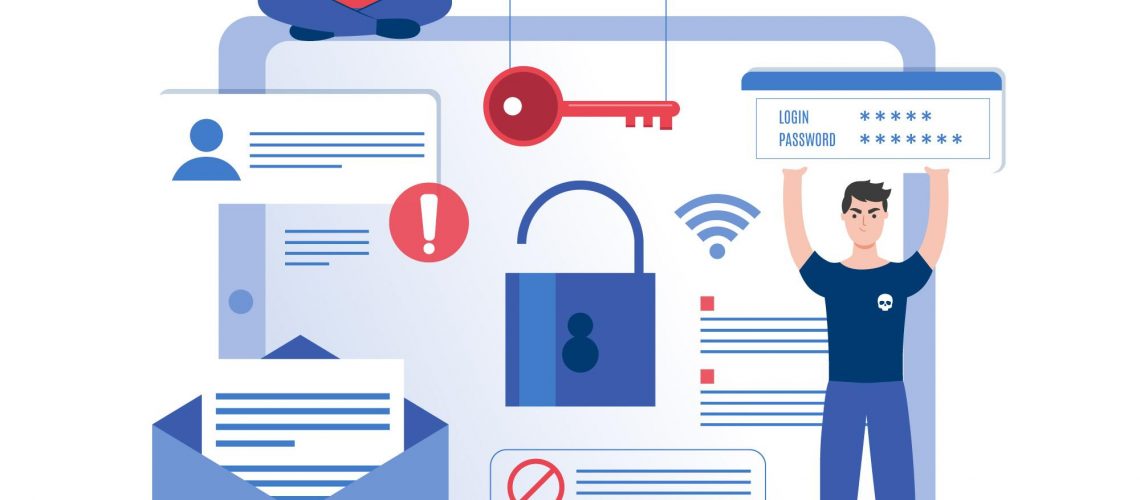Myth of Online Privacy :
- It is a fundamental right to life and personal liberty under Article 21 and as a part of the freedoms guaranteed by Part III of the Constitution and the right to privacy is subject to reasonable restrictions.
- Nowadays both companies and states, have violated the privacy of Individuals. Individuals are not informed about the ongoing monitoring, the way our personal data is collected, analysed, and shared, nor given the opportunity to question the activities.
- With the global explosion in social media Facebook, Twitter and Instagram and Google have unprecedented access to information about people living in this millennial world. For hackers and stalkers, it’s a buffet lunch and there could unsuspecting attacks anytime and anywhere they wanted.
- All the engagements, divorces, and baby bumps are announced on social media. Many of us are going official on social networks declaring relationship statuses, expressing opinions, confessing mistakes, and announcing sexual identity like I am a gay, this is something that was uncommon a decade ago.
- Privacy was different in the past where we all had the Phone Directories and Yellow Pages having the complete address and I still remember the days I used to communicate on a Post Card with my parents asking them to pick me up from the hostel for a weekly holiday or send me a money order.
Privacy Classifications based on Data :
- (a) The data that could potentially be used to identify a particular person is (PII) Personally identifiable data.
- (b) Data that cannot be used on its own to trace, or identify a person is (Non-PII) Non-personally Identifiable Information, in simple terms, it’s the opposite of PII.
- (c) As per the (GDPR) General Data Protection Regulation, All data that qualify as PII which is sensitive in nature is termed as Sensitive Personally Identifiable Information
Offline and Online Privacy? :
- (a) The traditional understanding of privacy was very much connected to a physical space is termed as Offline Privacy
- (b) Online Privacy is called internet privacy is the right to keep sensitive data and information produced as a result of using the web, private. Businesses acquire as much personal information. Our behaviours, choices and locations are tracked and collected by companies looking to provide highly relevant information to your queries, tailored advertising campaigns, products, and services from your phone, GPS, and other devices and eventually shared with third parties.
Social Media Privacy Setups :
- https://www.facebook.com/help/445588775451827
- https://help.twitter.com/en/safety-and-security/how-to-make-twitter-private-and-public
- https://faq.whatsapp.com/general/security-and-privacy/how-to-change-your-privacy-settings?category=5245250
- https://help.instagram.com/116024195217477
- https://www.linkedin.com/help/linkedin/answer/66?lang=en
- https://safety.google/
- https://www.amazon.com/gp/help/customer/display.html?nodeId=GX7NJQ4ZB8MHFRNJ
- https://help.netflix.com/en/node/100628
Tips to Stay Private :
- Apply for Do Not Disturb Feature with your mobile service provider
- Have That Firewall Software installed on your PC.
- Browse the Internet on Stealth Mode by Using a Virtual Private Network (VPN).
- Use Incognito Mode feature of browsers while internet browsing.
- Use Privacy Conscious Browsers as TOR / Duck Duck Go.
- Check Legitimacy before clicking on any short Links or filling online forms.
- Properly set up, social media privacy settings.
- Stay Private on Public and Free Wi-fi networks.
- Never use public storage for private information purposes.
- Use Two Factor Authentication for all login purposes.
- Be doubly sure before you grant permissions for mobile apps and browser extensions
- Use messaging applications that have end-to-end encryption.
- Change all your default passwords of gadgets and applications.
- Use Parental Control, Safe Search and Play It Safe features for Kids’ electronic gadgets.
- Disable lock screen notifications on your smartphone



